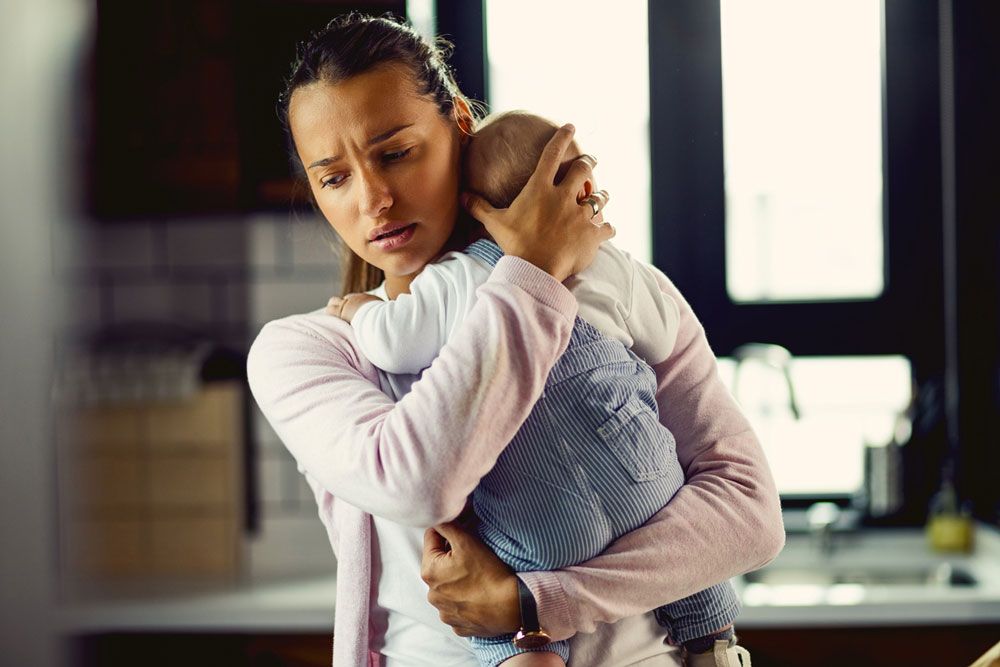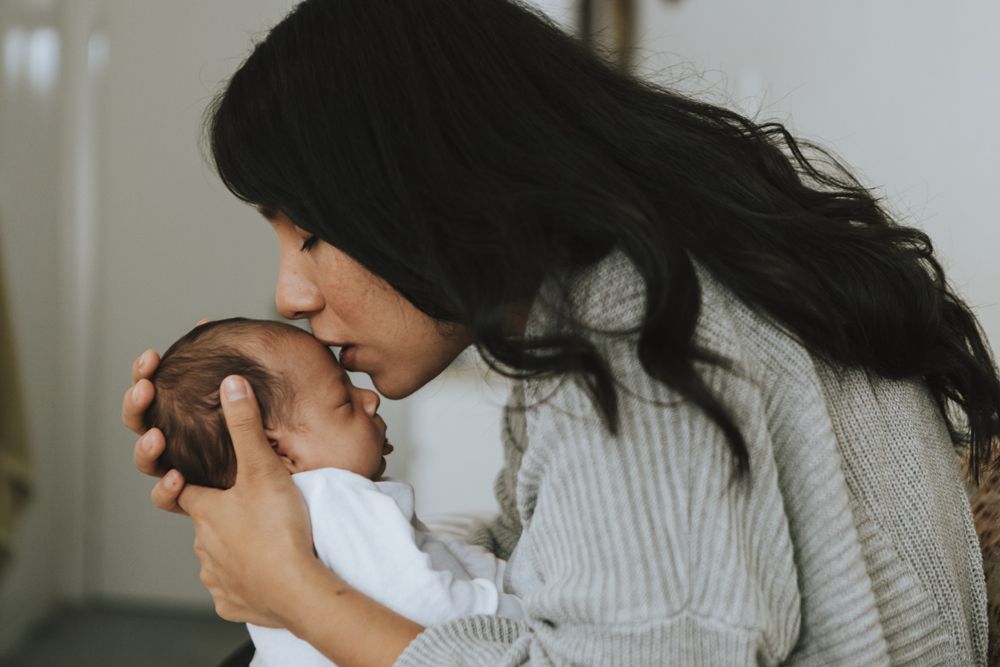Postpartum PTSD affects about 9% of women following childbirth. Here’s what it looked like for one new mom, and how she ended up getting help.
There was a white pick up truck driving close behind me. I had just left the Target parking lot with my 4-month-old son, and I was pretty sure this truck had followed us out. I turned right, the truck turned right. I started to panic, my breathing getting faster, my heart pounding. I turned left, the truck turned left. My mind started racing.
“I should just keep driving, I can’t turn into my neighborhood with this guy following us. What does he want with my baby?” I drive past the turn for my neighborhood, the truck changes lanes and zooms past me. I feel a mix of relief, confusion, and sadness. What was that? What just happened?
This scenario would play out many times on trips home from the grocery store, the library, or the mall.
Long drives and short drives. I was always certain I was being followed by someone who had watched me and my son in the parking lot. Certain they were after my baby. I knew this wasn’t normal, it wasn’t okay, but I didn’t really know what to name it or what to do about it.
Other days I was hyper-vigilant while out and about with the baby. We would go to Whole Foods and I would get so upset by people looking at him. “I just don’t want anyone looking at him,” I would tell my husband, knowing full-well that was completely unrealistic.
In a busy store, things would swirl around me.
Neon flashes as someone walked by. I could see my son in his stroller or carrier in front of me, but I couldn’t focus on the hustle and bustle around me. This would make me scared, and I would freeze, tear up, and start breathing uncontrollably.
It got to a point where I would avoid leaving the house and I would make up the excuse of not wanting to deal with the car seat or it was too rainy. I live in Seattle, so rain isn’t really an excuse not to leave the house. In reality, I just didn’t want to experience the overwhelming panic and fear that came along with taking my son out in public.
Outside of all the anxiety and paranoia, I was constantly bombarded by intrusive and obsessive thoughts about my son’s birth.
I would ruminate incessantly about one moment or a person who was there – the nurse, the doctor. These thoughts would come up at any moment, unannounced, unwelcome.
I wanted to find answers for how I was feeling. I knew it wasn’t postpartum depression – I didn’t fit the symptoms. Sure I had anxiety but this went well beyond typical anxiety. I went down the internet search rabbit-hole and came up with something I had no clue even existed—postpartum PTSD.
A subset of PTSD as a whole, postpartum PTSD can present in many ways.
For me, I finally had the words to describe what I had been dealing with for months. Flashbacks, intrusive and repetitive thoughts about the trauma- which in my case was the labor and delivery experience—hyper vigilance, and avoidance of stimuli. It was shocking to me that this not- uncommon disorder gets almost zero attention in the postpartum universe.
We spend our pregnancies being coached on the symptoms of postpartum depression and warning signs to watch for, but depression is only one piece of the puzzle.
I have spent months, now, in therapy to address these issues.
We’ve worked through the birth story, and I’ve reimagined it how I wish it would have played out—a process called re- processing and re-framing.
During this time, I’ve also had a few moments of clarity where I remembered something I had locked away. It has been surprising to learn that I have blocked out so many parts of the experience. Some of them painful, some of them confusing.
With the guidance of my therapist the pieces of the puzzle are slowly coming together and I’m learning to move forward from the trauma. I’m certainly not healed yet, but I’m working on it. I want to be well for my baby, for my family.
I look forward to the day that I can go to Target with my son
and not experience the paranoia and fear that has defined the first 9 months of my postpartum life.
If you or someone you know is struggling with a maternal mental health disorder, like postpartum PTSD, there is help available.
Visit www.postpartum.net for resources to meet your needs. You are not alone.

For more like this, check out our other posts on postpartum mental health.




Leave a Comment